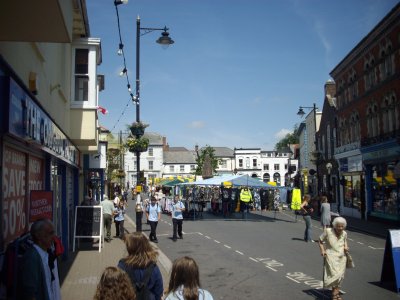Speaking to the Association of Convenience Stores, Mr Prisk described Britain’s local shops as a vital service for the elderly and a social hub for communities. In that speech he laid out the various ways the Coalition Government is attempting to assist and preserve our local shops, which we have detailed below.

Mr Prisk stressed that we must not overlook the crucial role the army of small shopkeepers across the country plays, not only economically, but also socially – offering a friendly face and social hub to local communities, particularly to the older generation.
The minister pointed to research suggesting that around a quarter of elderly people use their local shop, often a convenience store, every day.
Convenience stores represent:
- almost 40% of all rural shops
- over a third of shops in urban areas
- a quarter of all shops in the suburbs
Mark Prisk MP said:
“In the age of supermarkets and online retail it’s easy to forget that convenience stores make up more than quarter of all shops. Yet they are not just an important part of the economy. For many people their local shop is also a lifeline. Whether they’re used for daily supplies or the occasional pint of milk, they are an essential part of daily life.
“It’s why this government is introducing measures specifically designed to support convenience stores. That means reforming the planning system, easing the financial pressures with business rate support, and offering practical ways to attract new custom, all in order to keep this vital local resource intact.â€
He acknowledged the new economic challenges traditional shops now face, especially the changing way that people shop – whether online or in out-of-town retail outlets. He outlined the policies below as those doing the most to help local shopkeepers.
- the government’s work to cut the deficit by a quarter in 2 years, which has kept interest rates lower for longer
- new changes to the planning system to ensure that existing town centres should be the first preference for new retail facilities
- expert support and a multi-million pound fund for Portas Pilots and Town Team Partners will encourage strong and bold local leadership to create competitive high streets
- doubled small business rates relief and a 20% reduction of corporation tax are helping smaller firms manage their bills
- a delayed business rate revaluation, providing a more stable business environment and preventing an increase in rates for around 800,000 premises
- plans to help town centres adapt to changing demands, making it easier to convert empty offices into homes and bringing people back into the town centre
Regardless of these policies, recent months have seen yet more shops close on Britain’s high streets; many suffering in the shadow of multinational supermarkets and stores, like Tesco and Dunhelm Mill, who provide a single outlet for a diverse range of products and benefit from the costs implications of economies of scale.
[This includes the ability of large companies to hire experts to minimise tax. When compared pound for pound, we wonder who would be paying more tax between supermarket giants and local shops?]
Time will tell whether the improved economic conditions beginning to take shape will be enough to stem this process, or whether more drastic action will be needed from the Government.
[contact-form][contact-field label=’Email’ type=’email’ required=’1’/][contact-field label=’Like’ type=’checkbox’/][contact-field label=’Dislike’ type=’checkbox’/][contact-field label=’Comment’ type=’textarea’/][/contact-form]

